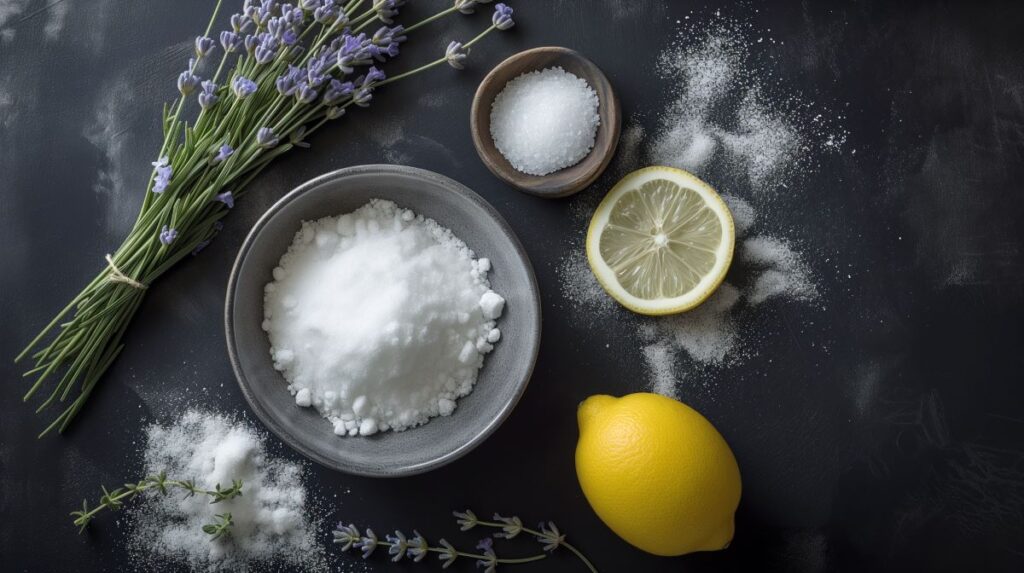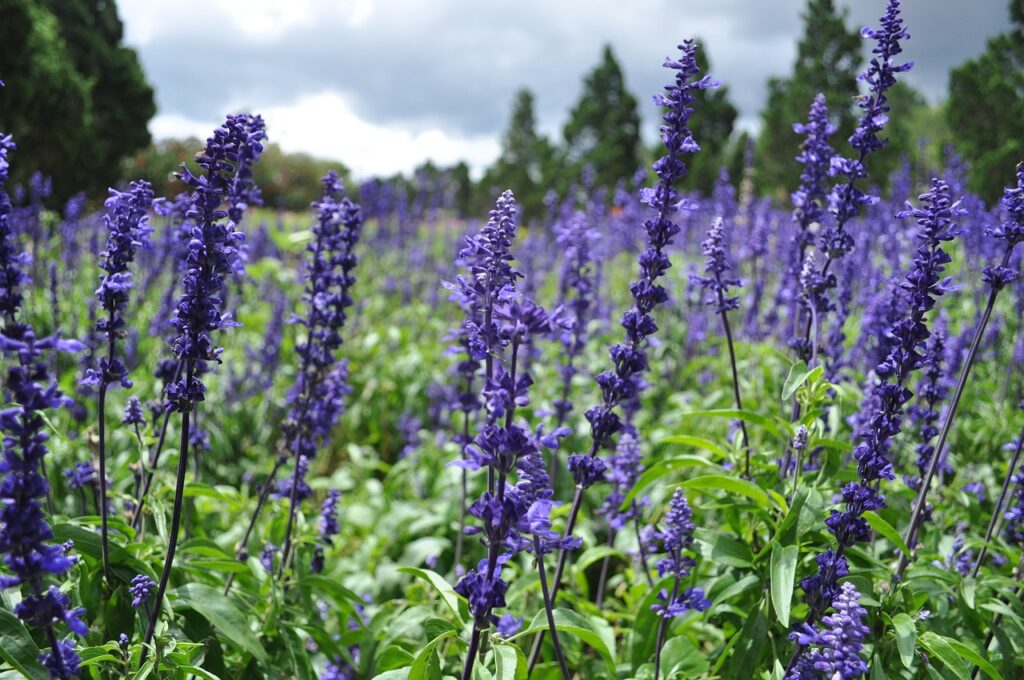Benefits of Natural Cleaning Products: Guide + 7 DIY Recipes
Switching to natural cleaning products can bolster your home’s safety and contribute positively to environmental health.
- The Importance of Choosing Green Cleaning Products
- Understanding Natural Ingredients: Common Cleaners
- Health and Safety Considerations
- Practical Cleaning Applications
- Eco-Friendly Practices and Products
- 7 Natural DIY Cleaning Recipes for Around the House
- Benefits of Natural Cleaning Products FAQs
- What advantages do bio-based cleaning products offer for indoor air quality?
- How do eco-friendly cleaning products impact the overall environment compared to traditional cleaners?
- What are the safety benefits of using non-toxic cleaning products in household and commercial settings?
- What distinguishes green cleaning products for commercial use from regular cleaning products in terms of efficacy?
- How can using natural cleaning products contribute to a healthier home or workplace?
- In what ways are biodegradable cleaning products more beneficial for waste management and water quality?
These eco-friendly alternatives are crafted from substances that you can confidently use without exposing yourself and your family to harsh chemicals. Reducing your family’s exposure is more than just a practical choice. It’s a lifestyle decision.
- Using green cleaning products minimizes your indoor exposure to pollutants that can be as harmful as outdoor pollutants.
- By avoiding synthetic fragrances and chemicals commonly found in traditional cleaners, you can reduce the risk of allergic reactions and the onset of asthma, which are concerns often linked to volatile organic compounds (VOCs).
- These improvements in your indoor air quality can make a noticeable difference to your well-being.
Moreover, these environmentally friendly cleansers support sustainable practices, from the responsible sourcing of ingredients to the use of biodegradable packaging. Even better, when making your own DIY cleaning products, you can reuse containers to avoid overall household waste.
The Importance of Choosing Green Cleaning Products
When you opt for green cleaning products, you’re making a decision that benefits the world you live in. While we think many aspects of the “green movement” are overblown, largely political, and driven by greed in many cases, we do believe we should be good stewards of what we’re given.
That includes our world, bodies, families, finances, etc. If we can implement a few easy changes to reduce waste in our local communities and use wholesome natural ingredients in our homes, why wouldn’t we?
Natural and DIY cleaning products are a simple decision that ensures good stewardship.
Positive Environmental Impacts
Biodegradability: Green cleaning products are often crafted to be more biodegradable than traditional cleaners. They break down more easily once they enter the environment, reducing pollution and the impact on wildlife.
Cleaner Manufacturing: The ingredients in many natural cleaners, such as essential oils, are sourced more sustainably with less waste and chemical byproducts.
Benefits for Personal Health
Non-Toxic Ingredients: Green cleaners are typically free from harsh chemicals. This means that by using them, you’re less likely to experience skin irritation or other adverse health reactions.
Reduced Chemical Exposure: The EWG and other health advocates note that many conventional cleaners contain substances that can be toxic if ingested or inhaled. Additionally, some chemicals can leech into the skin when you’re in regular contact with them.
By choosing natural cleaners, you’re minimizing your exposure to potentially hazardous compounds.
Advantages for Indoor Air Quality
Lower VOC Levels: Products approved by the Environmental Protection Agency (EPA) for green cleaning often contain lower levels of volatile organic compounds (VOCs), which can improve your indoor air quality.
Allergy and Asthma Friendly: Without the irritation caused by VOCs, individuals suffering from allergies or asthma could see an improvement in symptoms, making green products a smarter choice for those with respiratory sensitivities.
Understanding Natural Ingredients: Common Cleaners
When you choose to clean with natural products, you’re leveraging the power of ingredients that have been used for generations. These components are not only environmentally friendly but also highly effective against a variety of household dirt and grime.
Some of the most versatile and commonly used natural cleaners include baking soda, vinegar, lemon, essential oils, and salt.
Baking Soda
This common household item is a natural and effective abrasive.
Known for its mild abrasive properties and ability to neutralize odors, baking soda is excellent for scrubbing surfaces without scratching them. It’s especially useful for cleaning ovens, tile grout, and deodorizing.
Vinegar:
A natural cleaner, descaler, and deodorizer due to its high acidity of 2-3 on the pH scale.
- Due to these acidic properties, it can dissolve mineral deposits and soap scum. In addition to that, it can also break down stains and odors on varied surfaces.
- When mixed with rubbing alcohol, it creates a terrific evaporating glass cleaner. When mixed with dish soap, it cuts through almost anything.
These characteristics make it one of the most commonly used natural household cleaning ingredients in DIY cleaner recipes..
Lemon
Ideal for deodorizing and cutting through grease.
Lemons are natural deodorizers and have antibacterial properties due to their acidic nature. Additionally, lemon juice is a great deodorizer and can easily be added to homemade natural cleaners for that purpose.
Essential Oils
Essential oils like lemon, tea tree, and lavender have natural antibacterial, antimicrobial, and antiseptic properties that make them great natural ingredients for cleaning products.
- Tea Tree Oil: Known for its antimicrobial properties.
- Eucalyptus Oil: Often used for its antiviral capabilities.
- Lavender Oil: Favoured for its scent and mild disinfecting properties.
They can be added to solutions containing baking soda, vinegar, or castile soap for enhanced cleaning and aromatic benefits.
Using essential oils for household cleaning is a safe and effective way to disinfect surfaces without exposing yourself and your family to the harsh chemicals found in many conventional cleaners.
Salt
Due to its abrasive nature, it can serve as a great additive for scrubbing and scoring tasks on durable surfaces. For example, we regularly use salt to clean our cast-iron skillets. Never use soap on a cast-iron skillet!
Myth vs. Fact: Mixing Baking Soda and Vinegar
When baking soda and vinegar are mixed, they create a chemical reaction that forms carbonic acid. This solution quickly turns into carbon dioxide and water, resulting in a fizzing action that may help dislodge dirt, making it useful for tasks like unclogging drains.
For most cleaning purposes, this mixture is not recommended.
Here’s why:
The reaction between vinegar (an acid) and baking soda (a base) neutralizes their individual pH levels. As a result, their unique cleaning properties are diminished, rendering the combination no more effective than using plain water for cleaning.
While baking soda and vinegar are effective on their own, they should generally not be combined for cleaning. If you do mix them, it’s best to do so after the area has been cleaned with one or the other, using the reaction to remove any loosened dirt or residue as a final step.
Health and Safety Considerations
When you opt for natural cleaning products, you’re choosing to protect your health and the safety of your family.
From reducing exposure to toxic chemicals to safeguarding sensitive skin, the benefits are clear for everyone in your home, especially those with heightened vulnerabilities, like children and pets.
Avoiding Toxic Chemicals
Many conventional cleaning products contain toxic chemicals that can pose health risks. For example, phthalates—often found in fragranced products—can disrupt hormones, while formaldehyde can irritate the eyes, nose, and throat.
| Chemical | Found In | Health Concerns |
|---|---|---|
| Formaldehyde | Disinfectants, general cleaners | Carcinogen (EWG), respiratory irritation |
| Phthalates | Fragrances, air fresheners | Hormone disruption, developmental issues |
| Quaternary ammonium compounds (QUATS) | Disinfectants, antibacterial cleaners | Asthma, skin irritation |
| Sulfates | Detergents, soaps | Skin irritation |
| Glycol ethers | All-purpose cleaners, glass cleaners | Reproductive toxicity |
| Chlorine | Bleach, disinfectants | Respiratory irritation, asthma |
| Ammonia | Glass cleaners, general cleaners | Respiratory irritation, asthma |
| Triclosan | Antibacterial soaps, hand soaps | Hormone disruption, antibiotic resistance |
| 2-butoxyethanol | All-purpose cleaners, glass cleaners | Blood disorders |
| Parabens | Air fresheners, antimicrobial cleaners | Hormone disruption |
Choosing products containing mostly or exclusively natural ingredients will prevent exposure to the above chemicals.
Protecting Sensitive Skin and Allergies
If you or your family members suffer from sensitive skin or allergies, like our family, natural cleaning products can be a game-changer.
Some conventional cleaners contain ingredients that may irritate the skin or exacerbate allergy symptoms. For safer cleaning, consider using products free from irritants like chlorine bleach, prioritizing those specifically designed for sensitive skin.
Again, we prefer just making our own cleaning products. It’s so much cheaper, and we know exactly what’s in them that way.
Safety Around Children and Pets
In homes with babies, young children, or pets, the stakes are even higher when it comes to the safety of cleaning products.
Little ones and animals are often in close contact with surfaces and may ingest harmful chemicals during normal play. Also, always remember to store your cleaning products safely, even if they are natural.
By using natural cleaning products, you reduce the risk of accidental poisoning or harm, contributing to a safer home environment for your most vulnerable loved ones.
Practical Cleaning Applications
Natural cleaning products can effectively maintain your home’s cleanliness without harsh chemicals.
The key to success lies in understanding how to harness the potency of items like vinegar and baking soda to tackle different cleaning tasks in the kitchen, bathroom, and laundry. Let’s dive into that a bit deeper below.
Kitchen Cleaning Solutions
The list of cleaning opportunities in the kitchen is endless, as you’re probably already aware. We have a big family, so we know what it’s like to walk into a kitchen that’s in need of serious cleaning.
For kitchen countertops and sinks, simply create your own multi-surface cleaner by mixing equal parts water and vinegar in a spray bottle. Use essential oils to repel pests, add fragrances, or even kill bacteria.
For Stoves and Griddles:
Spray your multi-purpose cleaning solution and wipe clean to remove daily grime. To combat tougher spots like a dirty stove, sprinkle baking soda and allow it to sit before scrubbing. This combination provides a powerful clean without any toxins.
If you’re curious about how to clean a griddle or Blackstone griddle, we recently wrote a post about that, which you can read here:
How to Clean a Blackstone Griddle in 7 Minutes
For Floors:
- Mix 1/2 cup of vinegar in a bucket of warm water, offering a natural floor cleaner that’s safe for use on most surfaces.
- Add a few drops of essential oil for a pleasant scent.
Bathroom Cleaning Techniques
Tile Grout Cleaning
Soap scum and hard water stains on shower doors and tiles can be handled well with baking soda. Simply make a paste with baking soda and water.
For extra tough jobs, add equal amounts of dish soap and water, then enough baking soda to make a paste.
Toilet Bown Cleaning
When it comes to cleaning the toilet, toilet cleaners should be acidic in nature. There are many recipes online about mixing vinegar and baking soda to make a toilet cleaner. Do not mix baking soda and vinegar to clean!
As we mentioned earlier, baking soda and vinegar neutralize each other, eliminating their cleaning qualities if they had simply been used individually.
How to clean a toilet bowl naturally and effectively:
- Add 1 cup of white vinegar to a spray bottle with 20-30 drops of your favorite essential oils
- Spray inside the toilet bowl and allow the vinegar to soak in for 5-10 minutes. This will give the acid a chance to break down stains.
- Spray the inside of the bowl again and finish by dusting the bowl with a bit of baking soda.
- Scrub away any stains with a toilet brush.
With the above method, since the vinegar has had a chance to work without being neutralized by the baking soda, the stains should easily lift away. We add baking soda last so that the chemical fizzing reaction can help lift away the stains that have already been broken down in earlier steps.
Laundry and Fabric Care
Switching to green cleaning products like homemade laundry detergent can also yield positive results.
Combine washing soda, natural soap, and borax to create a detergent that’s both effective and environmentally friendly. Hard water stains on fabrics might require a specific natural cleaner like salt or baking soda.
For the freshest clothes:
- Add 1/2 cup of vinegar during the rinse cycle as a natural fabric softener and deodorizer.
- For tough stains on fabric, make a paste with baking soda, dab it on the stain, and let it sit before washing.
Relying on simple, natural ingredients in your cleaning routine can lead to a healthier home and environment.
Eco-Friendly Practices and Products
When considering the switch to nontoxic and eco-friendly cleaning, it’s important to focus on product choice, certifications, and underlying ingredients.
Of course, if you’re making your own DIY products, it’s also important to consider potential reactions between ingredients, as well as the quality of those ingredients.
Choosing the Right Eco-Friendly Products
Your choice of cleaning products can significantly affect your health and the environment. Opting for green cleaning products means selecting items that typically use biodegradable, non-toxic ingredients and are less harmful to aquatic life after going down the drain.
Brands like Eco-Me and Branch Basics set themselves apart by offering concentrated formulas.
Certifications and Labels as Guides
Navigating the world of eco-friendly products is made easier by reputable certifications.
- Look for the EPA Safer Choice label, which indicates products with ingredients that have gone through a testing process to determine their safety.
- Products that are EWG Verified meet some of the most rigorous chemical safety standards.
Again, we recommend simply making your own products or choosing products that only contain natural ingredients.
7 Natural DIY Cleaning Recipes for Around the House
Creating homemade cleaning products is so easy, and you can get started with many of the below recipes with items that are already lying around the house.
1.) All-Purpose Cleaner
- Ingredients: Mix equal parts of water and distilled white vinegar in a spray bottle.
- Use: Suitable for most surfaces except granite or marble.
2.) Scouring Paste
- Ingredients: Combine baking soda with enough water to form a paste. Add dish soap for tough stains and residue.
- Use: Effective for scrubbing tiles and grout, removing tough stains without scratching surfaces.
3.) Disinfecting Spray
- Ingredients: Mix together equal parts of water and hydrogen peroxide.
- Use: Ideal for sanitizing surfaces, but test fabrics for colorfastness first.
4.) Glass Cleaner
- Ingredients: Mix together 1 part white vinegar and 1 part isopropyl alcohol in a spray bottle.
- Use: Great for getting streak-free shine on windows, mirrors, and glass surfaces.
5.) Wood Polish:
- Ingredients: Mix together 1 part olive oil and 1 part lemon juice.
- Use: Polishes wood furniture and surfaces naturally.
6.) Oven Cleaner
- Ingredients: Make a paste with baking soda, salt, and water. Spread on oven surfaces and let sit overnight before scrubbing.
- Use: Removes baked-on grime from oven walls.
7.) Drain Opener
- Ingredients: Pour 1/2 cup baking soda down the drain, followed by 1/2 cup vinegar. Cover and let sit 15 minutes, then rinse with hot water.
- Use: Clears clogged drains naturally.
For any of the above simple recipes, add essential oils for even more of the benefits mentioned earlier in this post, the fragrance being one huge benefit.
Benefits of Natural Cleaning Products FAQs
What advantages do bio-based cleaning products offer for indoor air quality?
Bio-based cleaning products typically contain fewer volatile organic compounds (VOCs), which can improve your indoor air quality.
By reducing the presence of toxic fumes, they help maintain a cleaner and healthier air environment in your home.
How do eco-friendly cleaning products impact the overall environment compared to traditional cleaners?
Eco-friendly cleaning products often use biodegradable ingredients that minimize environmental pollution. These alternatives have a lower ecological impact as they break down more quickly and do not introduce harmful chemicals into ecosystems.
What are the safety benefits of using non-toxic cleaning products in household and commercial settings?
Non-toxic cleaning products reduce the risk of chemical burns and poisonings, making them a safer option for both homes and workplaces.
They particularly offer a safer environment for children, pets, and individuals with chemical sensitivities.
What distinguishes green cleaning products for commercial use from regular cleaning products in terms of efficacy?
Green cleaning products for commercial use are formulated to meet rigorous safety and performance standards while still ensuring efficacy.
They effectively clean without leaving behind harmful residues, which is crucial in settings such as restaurants, hospitals, and schools.
How can using natural cleaning products contribute to a healthier home or workplace?
Using natural cleaning products helps limit your exposure to harsh chemicals, which can contribute to health issues such as respiratory problems and skin irritation.
Their use promotes a healthier living and working environment. DIY or homemade cleaning products are even better since you’ll know the ingredients and have the flexibility to tailor them to your cleaning needs.
In what ways are biodegradable cleaning products more beneficial for waste management and water quality?
Biodegradable cleaning products are formulated to break down more easily in the environment, which supports proper waste management and protects water quality.
They help in reducing pollution and conserving aquatic ecosystems.


